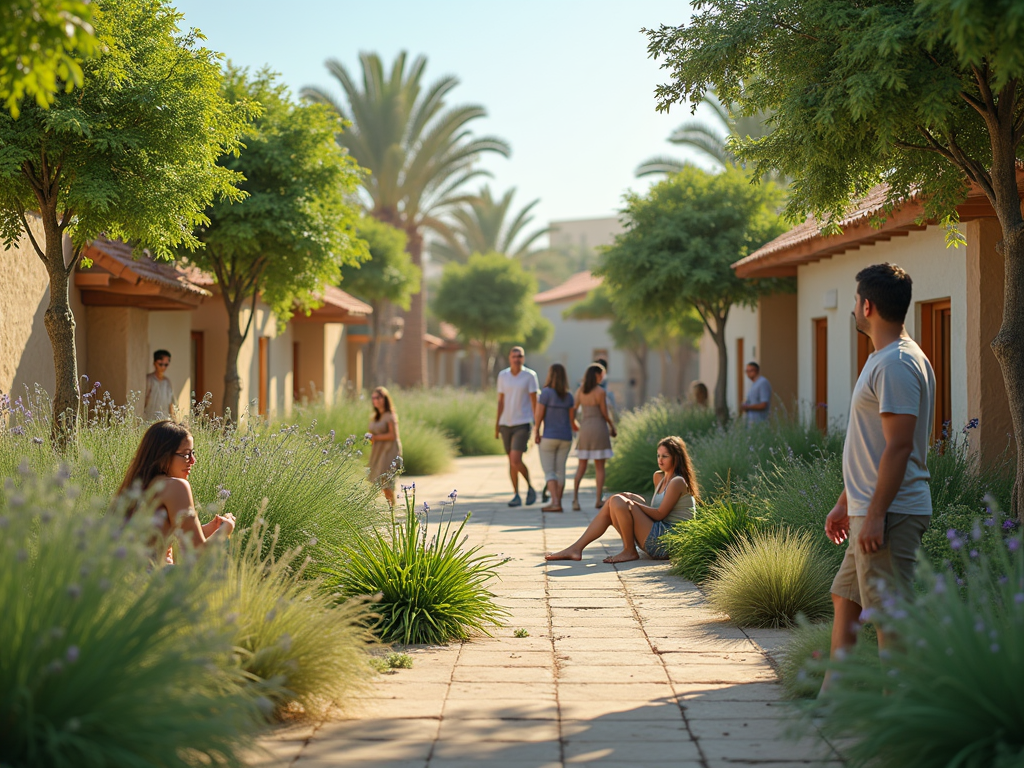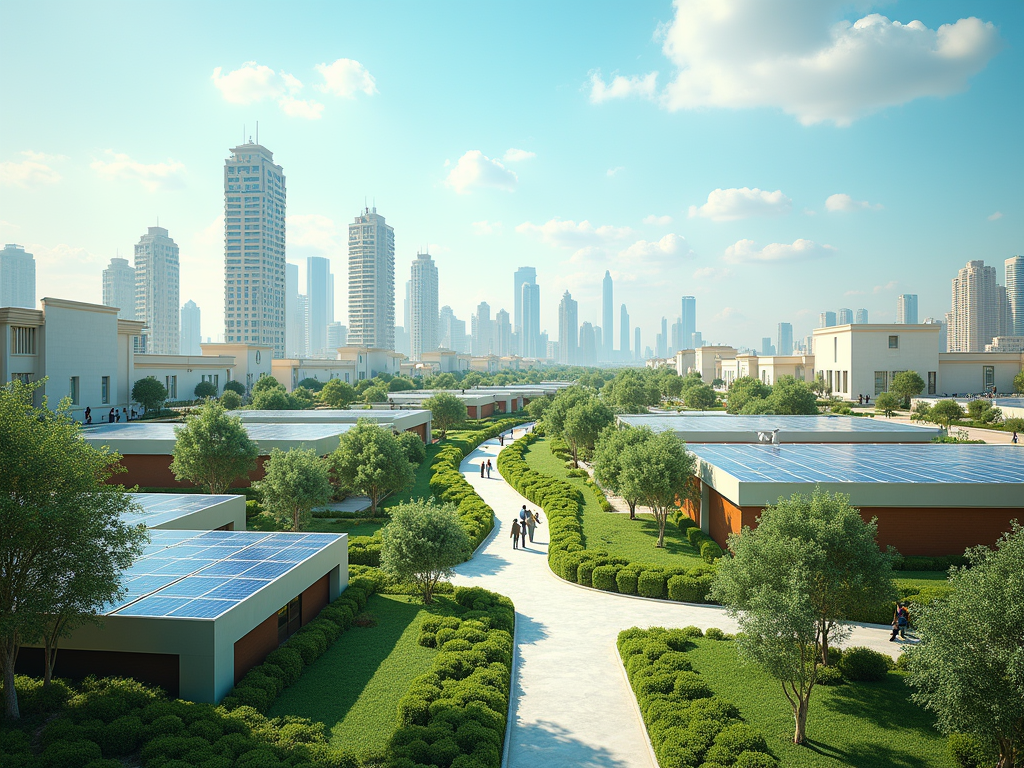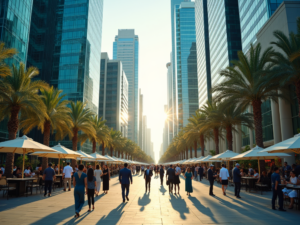Dubai’s Free Zones play a pivotal role in fostering green businesses by providing a unique ecosystem that encourages sustainability and eco-friendly practices. These zones are specifically designed to attract foreign investment and promote business ventures that align with the Emirate’s vision of environmental stewardship. The integration of green initiatives and innovative technologies in these zones not only enhances the operational efficiency of companies but also contributes positively to the broader objectives of the UAE’s sustainable development goals. This article explores how Dubai’s Free Zones support green businesses through infrastructure, incentives, partnerships, and regulatory frameworks.
Understanding Dubai’s Free Zones

Dubai’s Free Zones are specialized areas that offer various tax and regulatory benefits designed to stimulate economic growth, attract foreign investments, and promote a business-friendly environment. Each Free Zone is tailored to a specific industry or activity, enabling businesses to operate with reduced regulatory hurdles. Some of the most well-known Free Zones include the Dubai Multi Commodities Centre (DMCC), Dubai Silicon Oasis, and the Dubai Design District. These zones provide a platform for diverse sectors to thrive, including technology, logistics, trade, and increasingly, sustainable and green enterprises. The unique setting of the Free Zones facilitates collaboration, innovation, and the sharing of best practices among startups and established businesses alike, particularly in the green sector.
Facilitating Infrastructure for Green Innovation

In supporting green businesses, Dubai’s Free Zones have focused on developing state-of-the-art infrastructure tailored to sustainability. This includes the establishment of eco-friendly buildings that meet international green standards such as LEED (Leadership in Energy and Environmental Design) and EDGE (Excellence in Design for Greater Efficiencies). Furthermore, Free Zones are incorporated with renewable energy sources such as solar panels, waste management systems, and green transport options to reduce carbon footprints. The availability of shared resources ensures that small and medium-sized enterprises (SMEs) can access cutting-edge technologies that would otherwise be financially burdensome. Here are some aspects of the infrastructure provided:
- Green Buildings: Construction adhering to sustainable standards.
- Renewable Energy: Initiatives such as solar energy usage.
- Waste Management Systems: Programs designed to minimize and recycle waste.
- Green Transport Options: Accessibility to electric vehicles and efficient public transportation.
Incentives for Sustainable Practices
To further bolster the growth of green businesses, Dubai’s Free Zones offer various incentives tailored specifically for eco-friendly companies. These incentives often include tax exemptions, full ownership rights for foreign investors, and the ability to repatriate profits in full. Additionally, businesses engaging in sustainable practices may find that they are eligible for further grants, funding opportunities, and awards recognizing sustainable efforts. The government also implements schemes like ‘Green Dubai’, encouraging investments in green technologies. Such incentives lower the barriers for green businesses, making it easier for them to innovate and adopt environmentally friendly technologies. These financial and operational advantages significantly contribute to the attractive nature of Free Zones for green enterprises.
One of the cornerstones supporting green businesses in Dubai’s Free Zones is their ability to establish partnerships with various stakeholders, including government agencies, educational institutions, and international organizations focused on sustainability. These collaborations are crucial for knowledge sharing, resource pooling, and access to broader markets. For example, the Dubai Investment Development Agency (Dubai FDI) works closely with Free Zone authorities to facilitate the growth of green businesses by connecting them with investors and providing essential market insights. Universities and research institutions also play a pivotal role in fostering innovation by conducting relevant studies and training programs. Such partnerships help in creating a thriving ecosystem where green businesses can excel.
Conclusion
Dubai’s Free Zones are instrumental in driving the growth of green businesses by providing essential infrastructure, financial incentives, and collaborative opportunities. By focusing on sustainability and eco-friendliness, these zones support the UAE’s vision for a diversified economy that prioritizes environmental health alongside economic development. As the global demand for sustainable practices increases, these initiatives position Dubai as a leading hub for green innovation in the region and beyond. By continuing to refine their offerings and embracing new technologies, Dubai’s Free Zones will undoubtedly support the evolution of sustainable business practices in the future.
Frequently Asked Questions
1. What types of businesses can benefit from Dubai’s Free Zones?
Dubai’s Free Zones cater to a wide range of industries, including technology, logistics, trade, and particularly green businesses focused on sustainability and eco-friendly solutions.
2. Are there any specific regulations for green businesses in Free Zones?
While Free Zones offer flexibility, green businesses must comply with regulations related to environmental impact, waste management, and sustainable practices to maintain their certifications.
3. How does the government recognize green initiatives within Free Zones?
Green initiatives in Free Zones can receive recognition through awards, grants, and participation in programs like the ‘Green Dubai’ initiative designed to promote sustainability.
4. Can foreign investors fully own businesses in Free Zones?
Yes, one of the significant advantages of Dubai’s Free Zones is that foreign investors can fully own their businesses without the need for a local partner.
5. What support is available for startups aiming for sustainability?
Startups focusing on sustainability in the Free Zones can access incubator programs, funding opportunities, and mentorship from established companies and institutions within the region.

